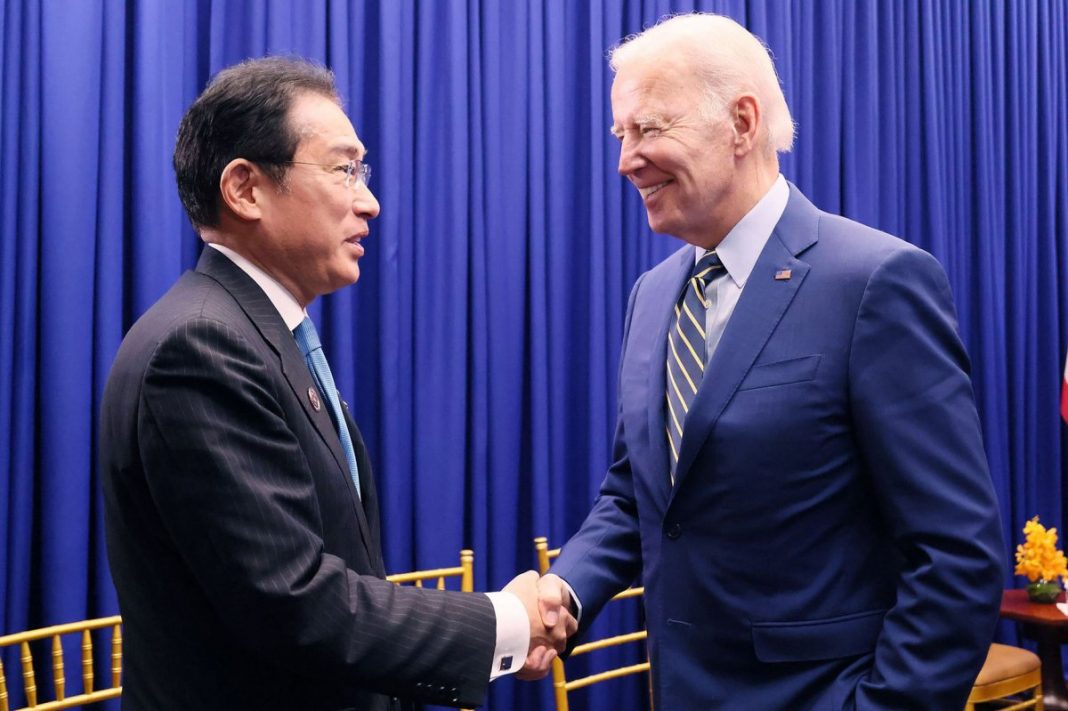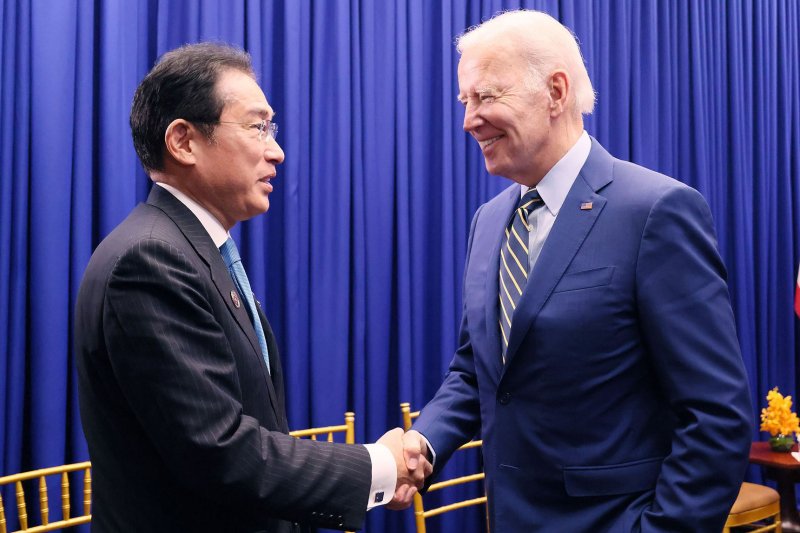Jan. 4 (UPI) — Japanese Prime Minister Fumio Kishida will make his first trip to the White House to meet with President Joe Biden on Jan. 13, the White House said in a statement on Tuesday.
Kishida and Biden are expected to talk about climate change, critical technologies, North Korea’s ballistic missile programs, Russia’s invasion of Ukraine and Taiwan.
“It will be a very important summit,” Kishida told local reporters on Wednesday. He will leave Japan on Jan. 9 and visit France, Italy, Britain and Canada before arriving in the United States.
The White House said the two will talk about deepening ties between the two governments and economies.
“Over the past year, the two leaders have worked closely together to modernize the U.S.-Japan Alliance, expand our cooperation on key issues from climate change to critical technologies including through the Quad, and advance a free and open Indo-Pacific,” the White House said in a statement.
“President Biden and Prime Minister Kishida will build on these efforts. President Biden will reiterate his full support for Japan’s recently released National Security Strategy, its presidency of the G7, and its term as a non-permanent member of the United Nations Security Council.”
In December, Japan enshrined military changes in three security documents, including a controversial counterstrike capability that opponents there claimed was unconstitutional.
Kishida’s government had sought to shed some of its post-World War II limitations on its military, including a provision that would allow the Japanese military to hit enemy bases and command-and-control nodes with longer-range standoff missiles.
Those favoring the change said it would be constitutional as long as an armed attack has occurred or was imminent; that there is no other way to halt an attack; and that the use of force is limited to the minimum necessary.

